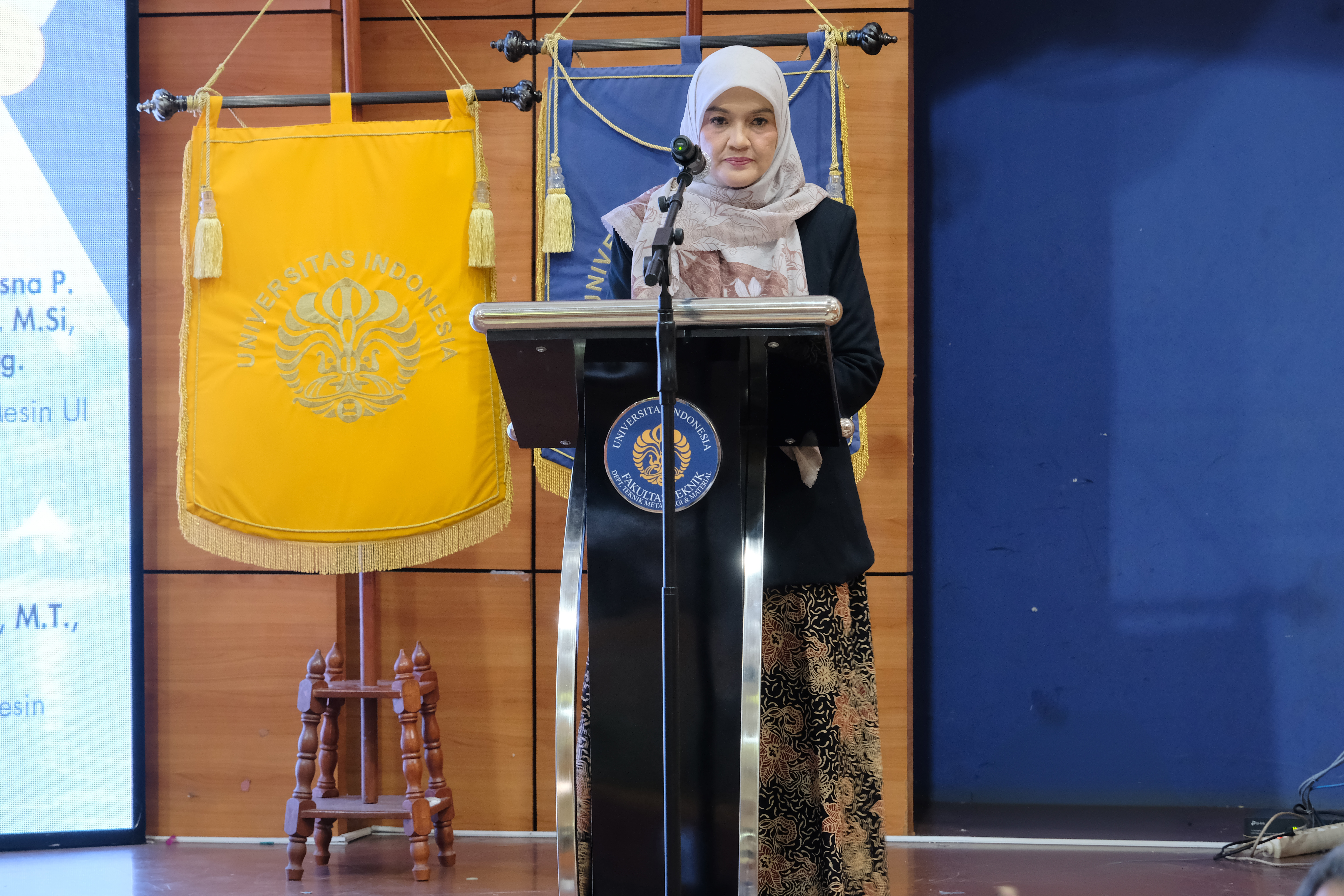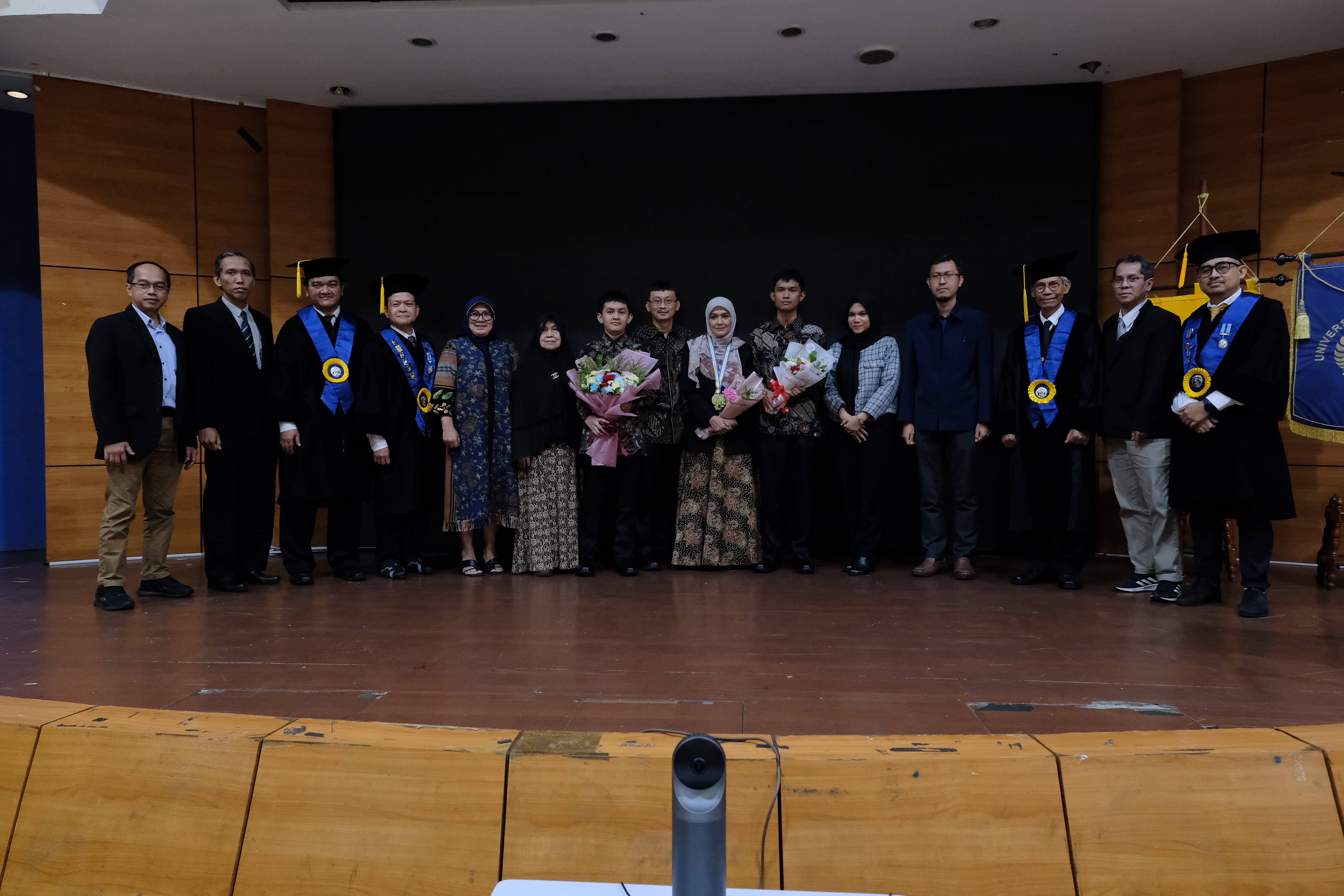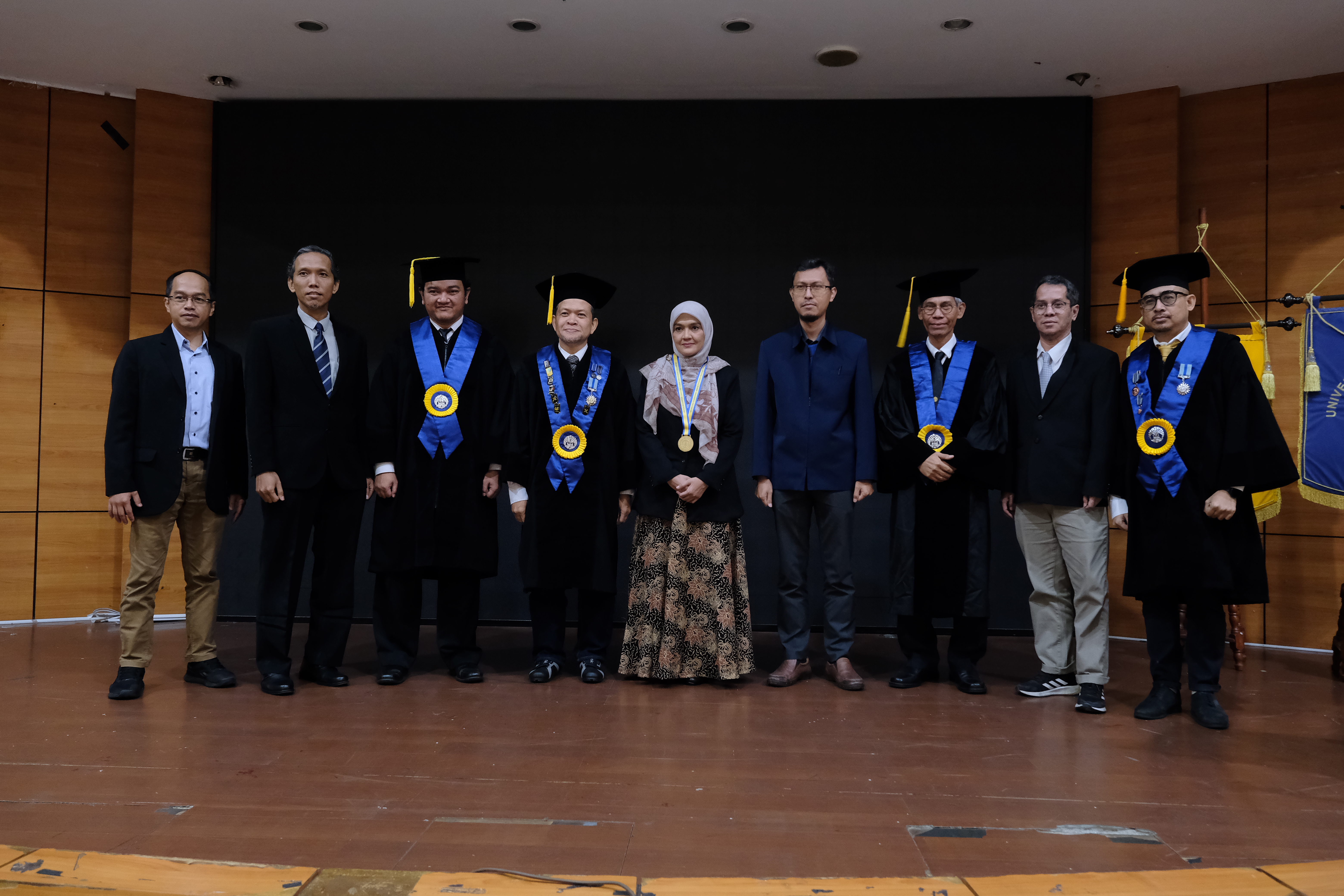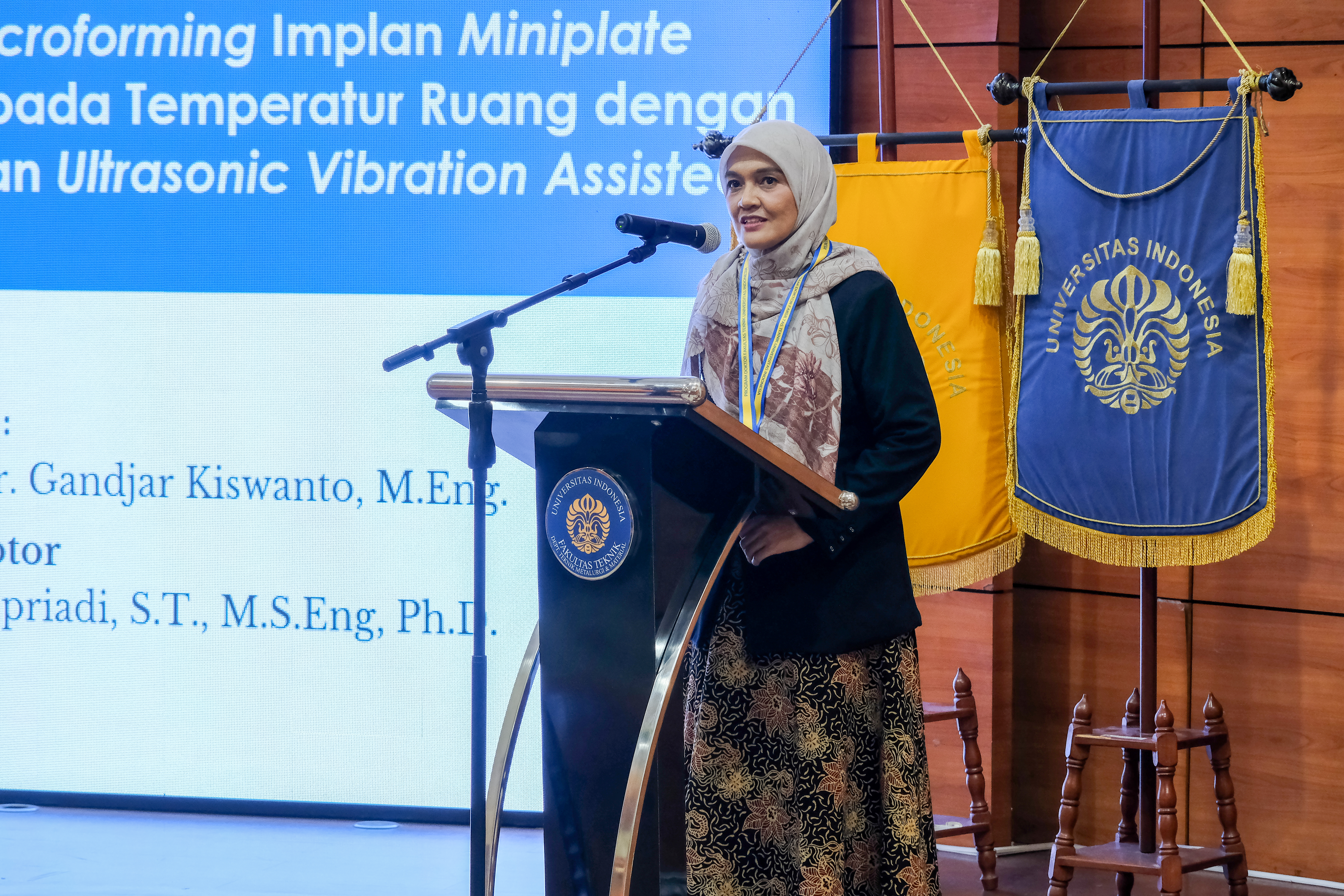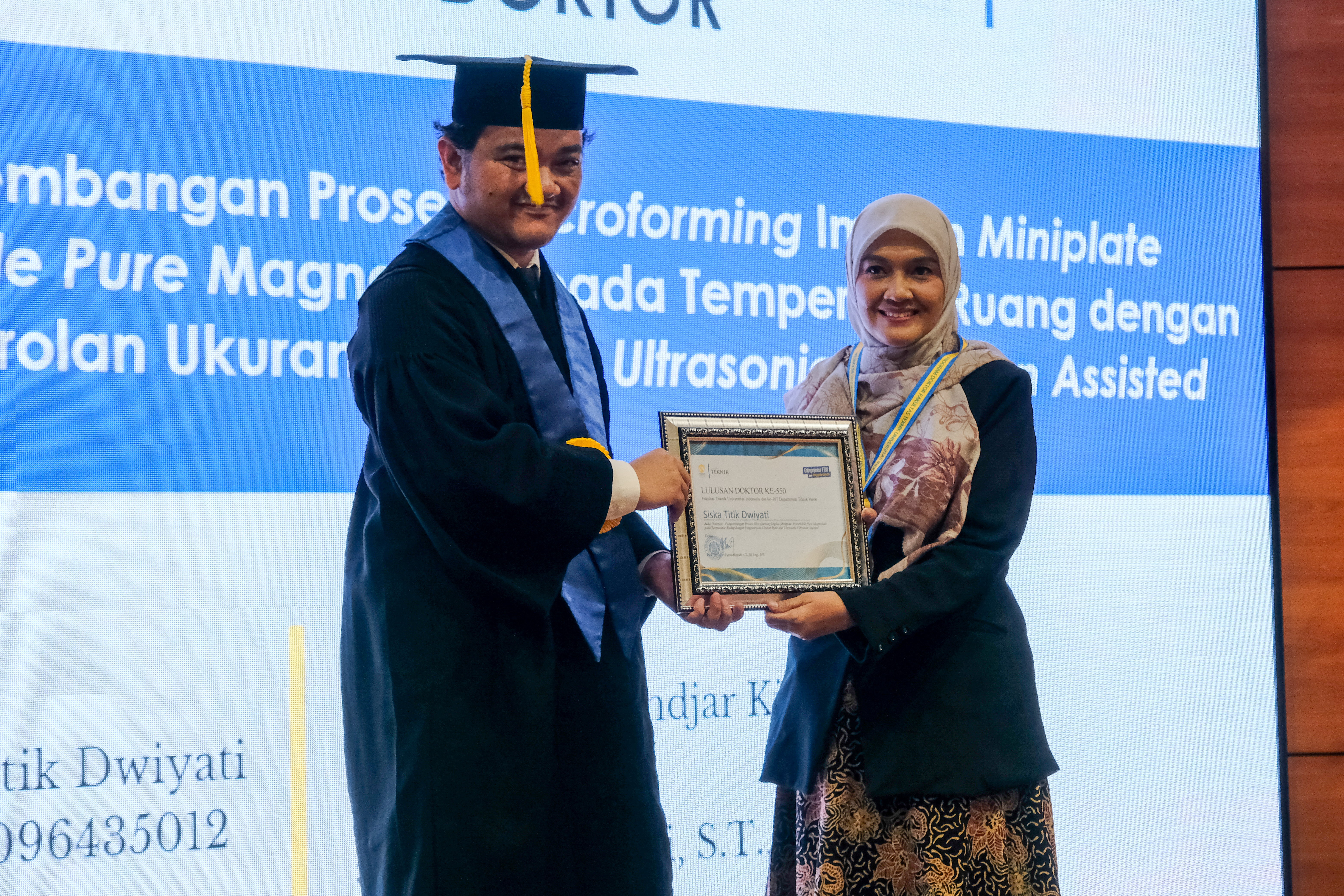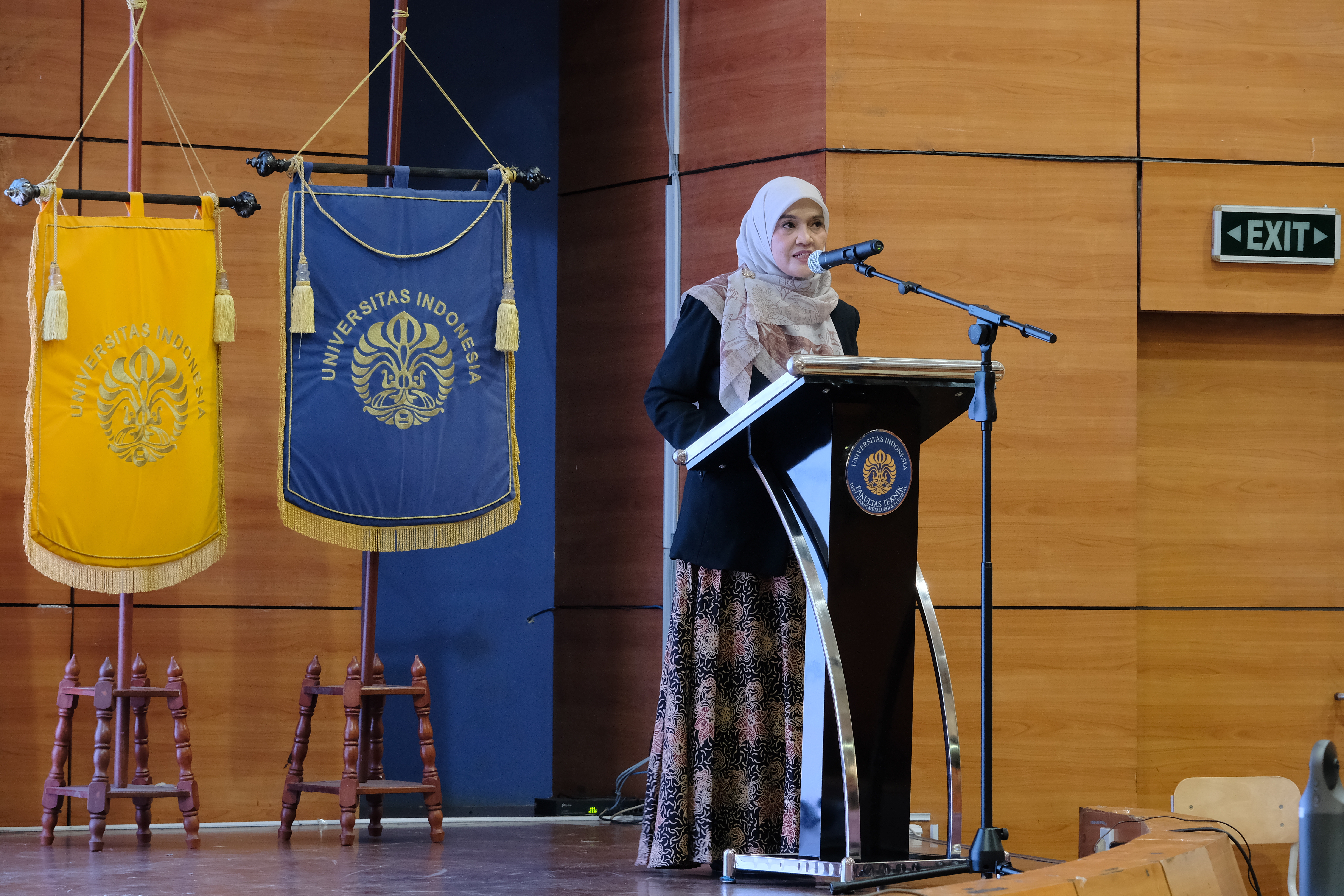Bone implants are generally divided into permanent and temporary implants. With advancements in biomaterial science reaching the third generation, the use of inert temporary implant materials is shifting towards absorbable metal materials. Among absorbable metals, magnesium has great potential to be developed as an implant, as it can eliminate the need for implant removal surgery once bone tissue has grown and fused.
Currently, implant manufacturing is typically done through machining processes. However, using forming processes could result in higher production rates and less material waste. Unfortunately, forming magnesium at room temperature is challenging due to its limited formability. Additionally, the microforming process for micro-sized miniplate implants must account for size effects.
This challenge prompted Siska Titik Dwiyati, a doctoral student in Mechanical Engineering at FTUI, to develop a micro forming process to produce pure magnesium miniplate implants with the necessary mechanical integrity and corrosion resistance to match the bone healing rate. Her ideas are detailed in her dissertation titled “Development of a Microforming Process for Absorbable Pure Magnesium Miniplate Implants at Room Temperature with Grain Size Control and Ultrasonic Vibration Assistance.” Siska Titik Dwiyati’s doctoral promotion took place on June 27, 2024, in Auditorium K.301 at the Faculty of Engineering, Universitas Indonesia.
“Craniofacial bone implants are generally designed to be thin and small, as this area does not experience much movement, necessitating a micro forming process for micro-scale mini plates. Since the microforming process involves size effects, grain refinement is used to address this issue,” Siska explained in her presentation.
Optimizing the material with grain refinement through the Equal Channel Angular Pressing (ECAP) process results in the highest percentage of grain refinement and ductility. However, grain refinement in the ECAP process is not accompanied by a significant increase in mechanical strength. To achieve higher mechanical strength, a rolling process is required, while homogeneity and corrosion resistance can be improved with annealing at appropriate parameters. Additionally, through the process at elevated temperatures, the properties and shape of the size effect in magnesium microforming can be addressed with ultrasonic vibration assistance.
The Dean of FTUI, Prof. Dr. Ir. Heri Hermansyah, S.T., M.Eng., IPU., expressed appreciation for Siska Titik Dwiyati’s research. He stated, “Siska Titik Dwiyati’s research is a breakthrough in the development of magnesium implants. Magnesium is an ideal material for temporary implants due to its biocompatibility. Additionally, Siska Titik Dwiyati’s research demonstrates FTUI’s commitment to producing innovative work that benefits society and serves as a tangible example of how engineering research can provide solutions to health problems.”
With her dissertation, Siska Titik Dwiyati earned a doctorate in Mechanical Engineering with a distinction and a GPA of 3.98. She is the 170th doctoral graduate from the Department of Mechanical Engineering and the 550th from the Faculty of Engineering, Universitas Indonesia. The promotion session was chaired by Prof. Dr. Ir. Ario Sunar Baskoro, S.T., M.T., M.Eng., with Prof. Dr. Ir. Gandjar Kiswanto, M.Eng., as the promoter, and Sugeng Supriadi, S.T., M.S.Eng., Ph.D., as the co-promoter. The examination committee included Prof. Dr. Ir. Tesna P. Soemardi, S.E., M.Si, IPU. ASEAN.Eng., Prof. Dr. Yudan Wulanza, S.T., M.Sc., Jos Istiyanto, S.T., M.T., Ph.D., Dr. Ahmad Zakiyuddin, S.T., M.Eng., and Rusnaldy, S.T., M.T., Ph.D.
***
Public Communication Office
Faculty of Engineering, Universitas Indonesia

